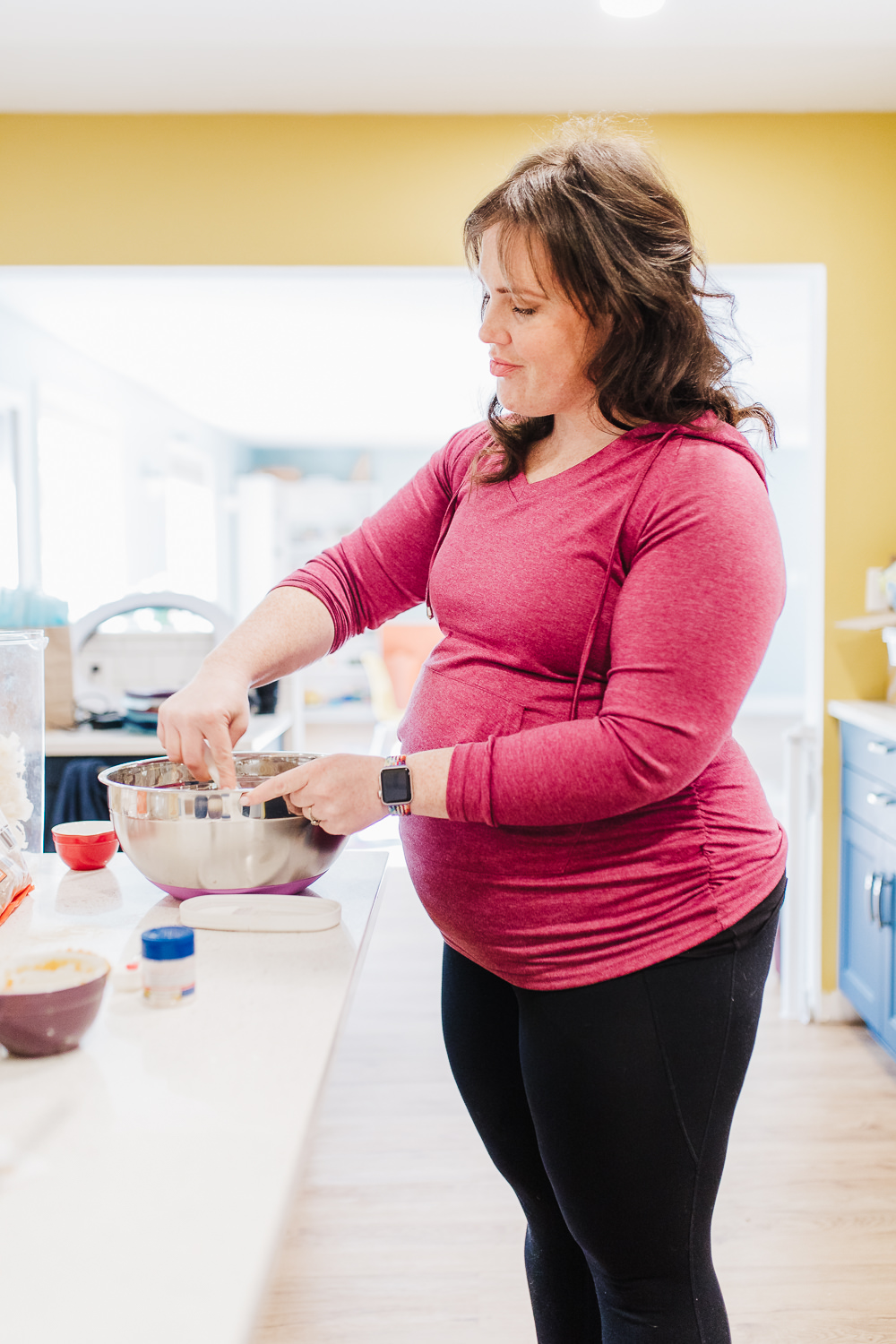Programs
Blog
About
PRegnant
LifeStyle
Postpartum
EXPECTING A BABY IN THE NEXT FEW MONTHS?
DOWNLOAD MY FREE POSTPARTUM ESSENTIALS CHECKLIST
Hi, I'm Liz!
I'm a chocolate-loving nutritionist,
pre & postnatal coach, doula and let's face it- total birth nerd 🤓.
I'm here to help you cut through mommy-marketing and pinterest perfection to confidently cultivate a pregnancy and postpartum experience you totally love.
Let's Connect
RECIPES
BREAKfast
beverages
main dish
dips & Dressings
salads & Sides
snacks
soups
treats
instant pot
one dish meals
quick meals
Pregnancy
Birth Planning
FIrst Trimester
Second Trimester
THird Trimester
Postpartum
Postpartum Planning
FOurth Trimester
REcovery
wellbeing
Fitness
Pregnancy Loss
Understanding Loss
Recovery After Loss
Friends & Family SUpport
PArent Life
Pregnant?
Check out the
5 core exercises you need to know!
Take the stress off your plate! Download
Meals Made Simple!
i need this!
Yes Please!
shop SAfer at beautycounter
Get the BEst Non-toxic Deodorant!
FItness
Nutrition
Nutrition
Grief & wellbeing
Pregnancy After Loss
Understanding Loss
Recovery After Loss
Friends & Family SUpport
Grief & wellbeing
Pregnancy After Loss
Understanding Loss
Recovery After Loss
infant & Toddler Feeding
Grief & wellbeing
Pregnancy After Loss
Newborn Care
Family Dynamics
PArent Relationships
lactation
Pregnancy After Loss
Is fragrance impacting your fertility?
If you and your partner are struggling with fertility, you may be looking at every factor that could be affecting your odds of conceiving. Food, fitness, and health history are some obvious factors, but have you considered fragrance? The luxuriously scented sets of soap and lotion in the bathroom, “fresh and floral” clothes detergent, that spritz of sexy perfume; these innocent-seeming scents might put you in a baby-making mood, but may sabotage the making of a baby. Here’s how fragrance may be impacting your fertility.
What’s in a smell?
If you have strived to remove endocrine disrupting chemicals (EDCs) found in plastics, personal care products, and even receipt paper, but are still using products with “fragrance” or “parfum” then those EDCs are likely still there.
How?
Under an FDA labeling loophole, companies may list “fragrance” or “parfum” without disclosing what chemicals are actually contained in “fragrance.” This was intended to protect trademark secrets and blends, but in reality, allows thousands (3,163 to be exact) of chemicals to hide in everyday beauty and cleaning products! (1)
Common Chemicals Hidden in Fragrance
- Phthalates are used both for their ability to make products flexible (think plastic) and help fragrances “stick.”
- BHT is used as a preservative (yay for no germs).
- Oxynols help liquids spread and blend (helpful for perfumes).
- Parabens are used as preservatives (again, rancid products are not ideal).
Because of the fragrance loophole, it’s not enough for something to be labeled “paraben or phthalate free.” If fragrance (with undisclosed ingredients) is listed, these chemicals are likely included.
How Fragrance is Impacting Fertility
These ingredients sound reasonable enough at first glance, however, studies have shown definite downsides. Chemicals like phthalates, BHT, oxynols and parabens may throw off the delicate hormone balance. This is especially problematic for those trying to conceive or who are currently pregnant.
Hormone Balance, Thyroid Health & Ovulation
When hormone balance is disrupted, the needed hormone messages are not sent where they need to go or in the right amounts. This disrupts thyroid function, estrogen-action, and ovulation. How do you know if these hormones are affected? Are you tired all the time, losing your hair, have cold hands or feet, and are gaining or unable to lose weight? This could be signs of thyroid dysfunction. Do you experience irregular cycles, painful periods, or severe PMS? You might be experiencing estrogen-dominance which is an imbalance of your levels of estrogen and progesterone.
Many chemicals found in fragrance, like phthalates, are toxic to your ovaries and impact your fertility . They damage follicles in their development into eggs.(2) Phthalates also mess with your ovaries’ ability to produce estrogen and progesterone, further throwing off your hormonal balance.
You may also like: 5 toxins to avoid in your beauty products

It takes Two
Men’s fertility can be affected too! (3) Men’s ability to create sperm (spermatogenesis)is disrupted, which can lead to a reduced sperm count.(3) These chemicals can also alter sperm genes related to growth and development impacting the early development of a baby. (4)
High concentrations of these chemicals in couples undergoing IVF treatments has been associated with increased risk for failed IVF and miscarriage. (3)
Inflammation & Infertility
These chemicals are inflammatory in nature. Women use on average 12 different products every day which expose them to 168 chemicals. (5) Think about the amount of chemical exposure over the years, over a lifetime! Every swipe with a scented wipe or application of fruity lip gloss increases the risk for hormone imbalance and developing diabetes. (6) In pregnancy, hormonal disruption and inflammation increase risks for birth defects, preeclampsia, and low birth rate. (7,8,9)
Autoimmunity and unfair burden
Women, on average, use more personal care products than men. This means they have an increased exposure to chemical toxins in fragrance. This increased exposure plus the physical and emotional demands of pregnancy and postpartum, may explain why more women suffer from autoimmune conditions than men. Not only is developing an autoimmune condition a major health concern, but conditions such as Hashimoto’s Thyroiditis, if uncontrolled, increase the risk of infertility, lower IQ scores in babies born, and may increase the risk of miscarriage by as much as 300%. (7-9)
Where is fragrance hiding?
Unfortunately, not just in that spritz of perfume.
- Tampons/Pads
- Makeup
- Skincare
- Garbage bags
- Laundry Detergent & Dryer Sheets
- Air Fresheners
- Bath Soaks
- Deodorant
- Hair Care
- Candles
Safer, not stinky!
Removing the ingredient “Fragrance” doesn’t mean you can’t enjoy nice-smelling things!
- Essential Oils and Plant Extracts listed out within the ingredients list,–without any other “fragrance” listed, –will still let you enjoy beautiful smells sans the toxins
- “Fragrance-free but not “unscented.” In “unscented” products, chemicals that are not “fragrance” may be added to make the product smell like “nothing.” If these chemicals are in small amounts they don’t have to be listed on the label. (10)
- Be wary of greenwashing. Look for companies that value honesty and transparency such as certified B-Corporations. Companies are catching on that “clean,” “green” products sell. Not all of these companies have our unsuspecting, best interests at heart. Products advertised as “natural,” “botanical,” and “plant-based” might be utter BS and still contain unwanted chemicals because these terms are not legally defined or enforced by the FDA. Confusing and frustrating, right?
- Use apps like EWG’s Healthy Living and Think Dirty to find recommendations and product ingredient breakdowns. Both allow you to scan products barcodes and then give you a rating based on the ingredients.
- Shop at stores like Natural Grocers who use EWG guidelines to guide personal care product selections in their stores.
- Even Target has a new in-store and online feature of marking clean products they carry with a green Target “clean” stamp next to their price. These stamps are only given to products that meet Target’s clean guidelines. This symbol can make shopping in the cleaning and personal care aisles much, much simpler.
Bottom line
- Tackling the removal of fragrance can be overwhelming; start small. Try slowly swapping out your favorite products one at a time.
- Prioritize progress over perfection. Every time you make a healthy choice for you and your family, celebrate—don’t beat yourself up over the 50 other healthy choices you want to make. Every step in a non-inflammatory direction will benefit you. So, take it one step at a time.
Sources
- 3,163 ingredients hide behind the word “fragrance” | EWG. https://www.ewg.org/enviroblog/2010/02/3163-ingredients-hide-behind-word-fragrance. Accessed February 11, 2020.
- Hannon PR, Flaws JA. The effects of phthalates on the ovary. Front Endocrinol (Lausanne). 2015;6(FEB). doi:10.3389/fendo.2015.00008
- Paul MS, Berger R, Berlow N, et al. Fathers exposure to phthalates impact epigenetic marks in sperm DNA. Hum Reprod. 2010;25(1):133-141. doi:10.1093/HUMREP. https://www.whatisepigenetics.com/fathers-exposure-phthalates-impact-epigenetic-marks-sperm-dna/.
- Al-Saleh I, Coskun S, Al-Doush I, et al. Couples exposure to phthalates and its influence on in vitro fertilization outcomes. Chemosphere. 2019;226:597-606. doi:10.1016/j.chemosphere.2019.03.146
- Personal Care Products Safety Act Would Improve Cosmetics Safety | EWG. https://www.ewg.org/Personal-Care-Products-Safety-Act-Would-Improve-Cosmetics-
- Radke EG, Galizia A, Thayer KA, Cooper GS. Phthalate exposure and metabolic effects: a systematic review of the human epidemiological evidence. Environ Int. 2019;132. doi:10.1016/j.envint.2019.04.040
- Mueller SO. Xenoestrogens: Mechanisms of action and detection methods. Anal Bioanal Chem. 2004;378(3):582-587. doi:10.1007/s00216-003-2238-x
- Kelley AS, Banker M, Goodrich JM, et al. Early pregnancy exposure to endocrine disrupting chemical mixtures are associated with inflammatory changes in maternal and neonatal circulation. Sci Rep. 2019;9(1). doi:10.1038/s41598-019-41134-z
- Cellini M, Santaguida MG, Stramazzo I, et al. Recurrent Pregnancy Loss in Women with Hashimoto’s Thyroiditis with Concurrent Non-Endocrine Autoimmune Disorders. Thyroid. February 2020:thy.2019.0456. doi:10.1089/thy.2019.0456
- Geenen V, Berrih-Aknin S, Betterle C, Diaz Brinton R, Desai MK. Autoimmune Disease in Women: Endocrine Transition and Risk Across the Lifespan. Front Endocrinol | www.frontiersin.org. 2019;1:265. doi:10.3389/fendo.2019.00265
- Merrheim J, Villegas J, Van Wassenhove J, et al. Estrogen, estrogen-like molecules and autoimmune diseases. 2020. doi:10.1016/j.autrev.2020.102468
- Dach J. Low Thyroid, Hashimoto’s Disease, and Pregnancy. Altern Ther Heal Med.2017;23(2):4-6.http://web.a.ebscohost.com.nunm.idm.oclc.org/ehost/pdfviewer/dfviewer?vid=1&sid=8590c0c2-d149-48d0-a234-197655d2bcaf%40sessionmgr4008.
- Cosmetics Labeling Guide | FDA. https://www.fda.gov/cosmetics/cosmetics-labeling-regulations/cosmetics-labeling-guide#clgl4. Accessed February 25, 2020.
Related
June 13, 2020
Joria Koons
The post may contain affiliate links and the site may earn a commission on some products.
Every item on this page is chosen and recommended by the LWW team.
Read more about our Affiliate Disclosure here.
Holiday hits
Don’t miss these!
Want to add a little ease to your routine as a parent?
Get all my favorite tips, tricks and recipes delivered straight to your inbox.
start here
blog
work with liz
programs
non-toxic living
podcast
contact
© 2021 LIZ WINTERS WELLNESS // WEBSITE BY PINEGATE ROAD
Terms & Conditions
start here
blog
work with liz
PROGRAMS
non-toxic living
podcast
contact
© 2021 LIZ WINTERS WELLNESS // WEBSITE BY PINEGATE ROAD
Terms & Conditions
BADASS Birther's Club
Postpartum Recovery After Pregnancy Loss
How to Support Loved Ones After Loss
start here
blog
work with liz
PROGRAMS
non-toxic living
podcast
contact
© 2021 LIZ WINTERS WELLNESS // WEBSITE BY PINEGATE ROAD
Terms & Conditions
Pregnant
Postpartum




